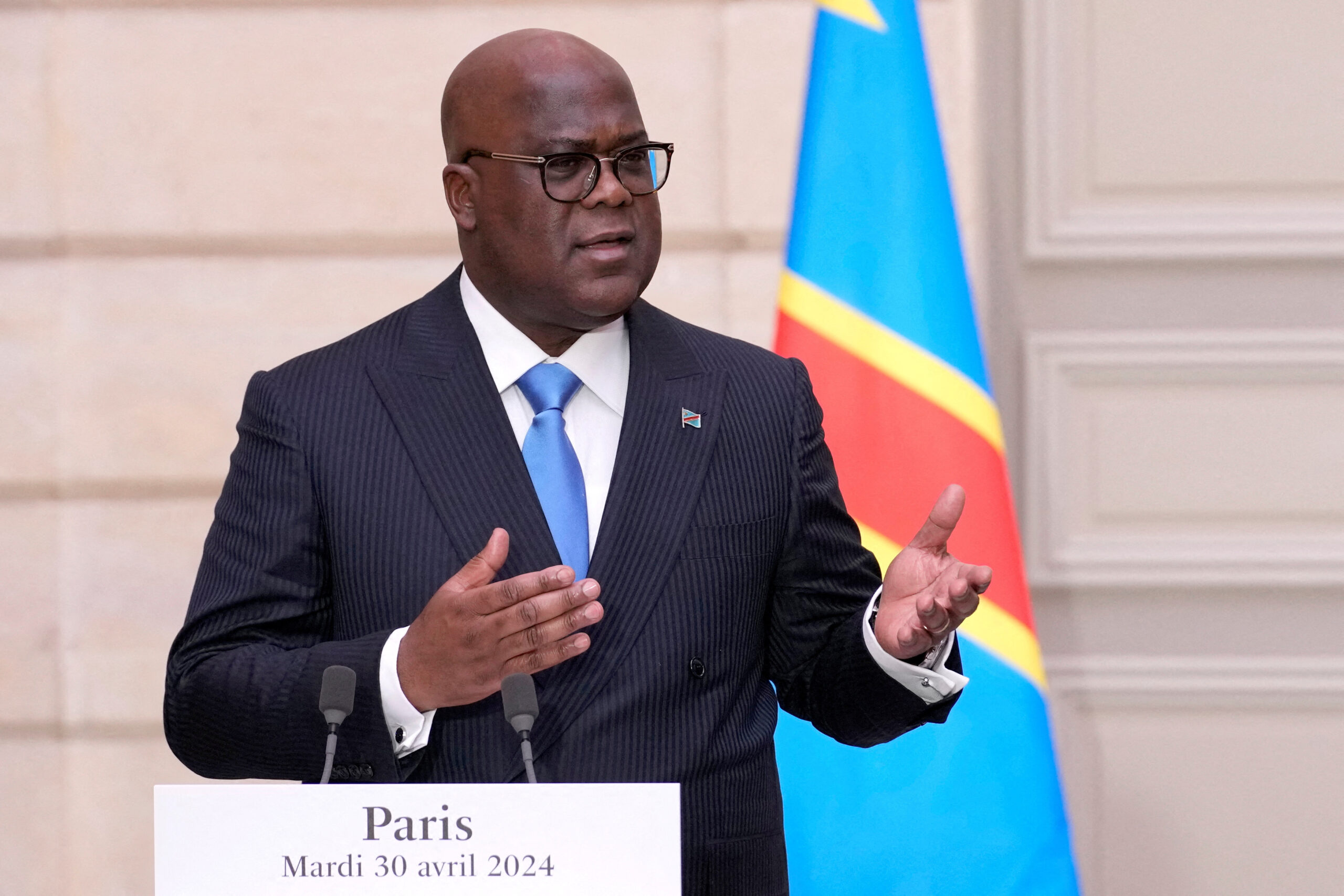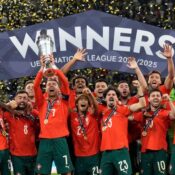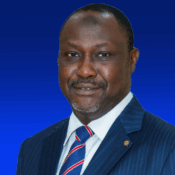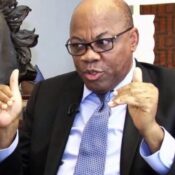
Explainer: Understanding the aborted coup in the Democratic Republic of the Congo
Authorities in the Democratic Republic of the Congo reported that security forces prevented a coup attempt on Sunday, during which armed men targeted the residences of high-ranking officials and briefly took over the presidential office in Kinshasa.
Consequently, what happened?
The prime minister’s, the defense ministers, and a prominent politician who is expected to become speaker of parliament’s residences were attacked early on Sunday morning by a group of about fifty men wearing camouflage fatigues, according to the army.
Authorities referred to it as a coup attempt.
The attackers gained entry to President Felix Tshisekedi’s office at the Palais de la Nation, a stately edifice adorned with porticos located in the heart of Kinshasa.
Armed men can be seen roaming around the presidential residence, whose glass doors have been damaged, in videos that have been circulated online but which Reuters has not confirmed. They raise the flag of Zaire, the former name for Congo. A shout goes up, “Felix, we’re coming for you.” Some shout, “Long live Zaire.”
Security personnel soon came in and killed three people in addition to Christian Malanga, a politician from Congo living in the United States, who was leading the group. 40 more people were detained, according to the army.
CHRISTIAN MALANGA: WHO WAS SHE?
Malanga, 41, described himself as the “President of New Zaire” and the leader of an exiled government on his website. The website describes Malanga’s goals for the nation under his direction but makes no mention of preparations to take over by force.
According to an internet biography, he fled as a young child and settled in the United States. He then went back to the Congo to battle rebels in the east while serving as an officer, and he also ran a campaign to incite opposition to the existing political elite in the country, which he claims is corrupt and mismanaged.
According to army spokesman Sylvain Ekenge, Malanga (who had earlier vowed to remove Tshisekedi on social media) staged an unsuccessful coup attempt in 2017.
An image of his body, covered in blood-stained fatigues and lying on the grass, was released by the army.
OTHERS: WHO WAS INVOLVED?
Foreigners and Congolese nationals were among those involved in the coup attempt, according to Congolese authorities. Those taken custody included three Americans, one of them was Malanga’s son, according to Ekenge.
A video showing many arrested accused coup participants sitting on the ground with armed guards nearby was released by the army. They have Zaire flags slung over their shoulders and are dressed in camouflage. It looks like there are two white men incarcerated in the video. One’s face is covered in blood, and the other’s eyes are bruised.
Benjamin Zalman-Polun, a citizen of the United States, was one of the attackers, Ekenge told Reuters. According to the local media, he was a businessman dealing in medical marijuana who also had mining interests with Malanga. Zalman-Polun or his representatives could not be reached by Reuters for comment.
A defendant bearing the same name entered a guilty plea in 2014 to the possession or distribution of at least 20 kg of marijuana, according to U.S. court records obtained by Reuters.
A detained individual identified as a recruiter for Malanga’s cause claims in the ministry’s film that Malanga intended to declare himself president.
“He indicated he had the support of the Americans, but we realize that he didn’t really have any,” the prisoner claimed.
According to the U.S. ambassador, the country will hold any American individuals engaged accountable and work closely with the Congolese authorities.
FOR CONGO, WHAT DOES THIS MEAN?
The coup attempt was put down quickly, indicating that the plotters were not a serious threat, but Tresor Kibangula, a political analyst at the Ebuteli research center in Congo, expressed alarm over the fact that the plotters attacked targets intended to be extremely safe.
“There was an unsettling level of apparent improvisation and unpreparedness throughout the entire exercise, which begs several questions: was Mandela acting alone? What about the weaknesses in the capital’s security setup?”
The drama occurs at a sensitive moment for President Tshisekedi, who is fighting to stop rebels backed by Rwanda waging a two-year offensive in eastern Congo that could escalate into a larger conflict.
Despite having a sizable majority in parliament, the ruling coalition has been unable to establish a government five months after Tshisekedi’s contentious reelection because of internal conflicts over posts.
All Categories
Recent Posts
Tags
+13162306000
zoneyetu@yahoo.com



